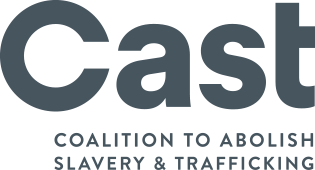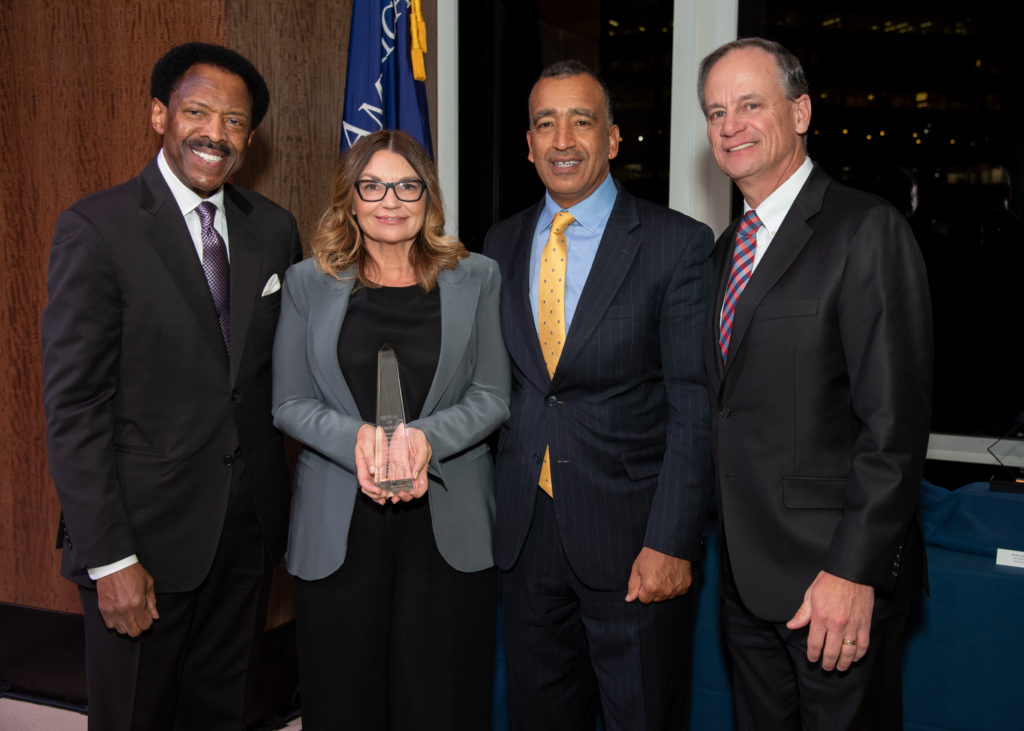At a press conference last month, San Diego Police Chief David Nisleit took aim at atSB357, the Safer Streets for All Act. The law, which went into effect two months ago,SB357, repealed previous California law that criminalized loitering with the intent to engage in sex work. Nisleit claimed SB357 prevented law enforcement from acting to disrupt human trafficking.
It was an odd claim, considering the police chief made it during a press conference in which he announced his department had successfully disrupted a human trafficking operation, identifying 16 victims of trafficking in the process and arresting 48 people after SB357 took effect. But Nisleit isn’t alone. In recent weeks, a small group of politicians and right-wing media personalities have spread similar claims. Fox News pundit Tucker Carlson, for example, spent an entire segment accusing SB357 of turning California into “a haven for human trafficking.”
These claims are not only false, but they also threaten much-needed reforms —such as those made by SB357 — to combat trafficking.
Although nowhere near a “haven” for human trafficking, California does have its share. According to the Public Policy Institute of California, 13% of all trafficking cases in the U.S. in 2021 occurred in California. No amount is acceptable, and Attorney General Rob Bonta has made ending human trafficking in the state a priority.
In the past, police departments would use the criminalization of loitering with the intention of sex work to arrest sex workers. They claimed that these arrests allowed them to get information that helped to identify victims of human trafficking. But for years, many police departments — including those in Oakland, San Francisco and San Diego — have been moving away from relying on loitering charges to combat human trafficking. That hard data is difficult to square with the current hysterical claims that this repealed statute was an essential tool for law enforcement to address trafficking.
So why did police departments move away from arresting trafficking victims to prevent human trafficking? Because it doesn’t work.
According to a study by UCLA School of Law researchers, nearly 1 in 3 “loitering, with intent” charges from 2017 to 2019 in Los Angeles were rejected due to a lack of sufficient evidence. Moreover, the practice made the problem even worse. Countless survivors of trafficking have said that being arrested was not only traumatizing and revictimizing, but created insurmountable barriers to seeking employment, safe housing, public benefits and immigration relief. Among survivor groups, it’s often said that the fastest way to trap someone in a life of exploitation is to arrest them for it.
Arresting the victims of trafficking is also considered a harmful and ineffective intervention strategy by many federal officials. Guidelines issued by the U.S.intervention Department of Justice’s Enhanced Collaborative Model Task Force prohibit funding from being used to arrest those engaged in the sex trade or sex buyers as a means of identification, outreach and assistance, citing that these tactics compromise survivor safety and recovery.
The practice was also under fire for being discriminatory. “Loitering with intent to commit prostitution” is so vague and subjective — allowing an arrest based on how someone is dressed or what makeup they’re wearing — that officers could make arrests for completely arbitrary, discriminatory and baseless reasons. Data from across the state also showed significant racial and gender disparities in who was arrested for loitering. People arrested under the old law were overwhelmingly transgender and cisgender (i.e., not transgender) women of color — not sex buyers or human traffickers. Black adults, for example, made up a majority of the people arrested for this crime in Los Angeles from 2017 to 2019, even though they are only 8.9% of the city’s population.
Traffickers rely on these arrests to criminalize victims so that they are trapped and unable to access safety due to their criminal records. The arrests make individuals being trafficked even more vulnerable to continued exploitation.
SB357 reduces the criminalization and vulnerability of survivors and enables those who were convicted of the repealed loitering crime to clear their names.
A core tenet of human trafficking is that traffickers utilize force, fraud and coercion to control their victims. The state replicates these circumstances when it threatens survivors with prosecution under a loitering law to incentivize them to cooperate or provide information. By threatening arrest and incarceration, the government signals to survivors that they cannot trust the criminal legal system and that it is not there to protect them. These practices only make it more difficult for survivors to trust the services that are available to them, such as housing, health care and counseling.
SB357 is a small step in the process of repairing our systems that cause harm to survivors.
Survivors of trafficking need support and resources without the threat of arrest as well as strong labor protections that all workers deserve.
Human trafficking has existed as long as inequality has existed and truly addressing it means doing the work to reduce inequality — as opposed to grandstanding for attention.
Leigh LaChapelle is associate director of survivor advocacy at the Coalition to Abolish Slavery & Trafficking. Tony Hoang is executive director of Equality California.
..



